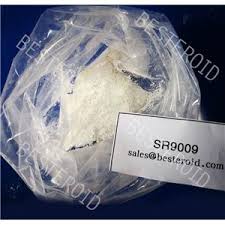
- +86-13363869198
- weimiaohb@126.com

Nov . 27, 2024 21:59 Back to list
The Benefits of Curcumin and Resveratrol for Health and Wellbeing
Exploring the Synergistic Effects of Curcumin and Resveratrol A Path to Enhanced Health
In the realm of natural compounds celebrated for their health benefits, curcumin and resveratrol stand out due to their potent bioactive properties. Curcumin, the bright yellow pigment derived from turmeric, has been extensively studied for its anti-inflammatory and antioxidant qualities. Resveratrol, a compound found in the skin of red grapes, is known for its potential anti-aging effects and cardiovascular benefits. As research continues to unfold, there is growing interest in the potential synergies between these two remarkable compounds.
The Health Benefits of Curcumin
Curcumin is best known for its role in traditional Ayurvedic and Chinese medicine. Its primary function is to reduce inflammation, making it a valuable ally against chronic diseases, such as arthritis and metabolic syndrome. Additionally, curcumin's antioxidant properties help combat oxidative stress, which is linked to various health conditions, including cancer, cardiovascular disease, and neurodegenerative disorders.
Studies have demonstrated that curcumin may modulate multiple cellular signaling pathways, leading to positive effects on various health outcomes. For example, it has been shown to inhibit the growth of cancer cells and induce apoptosis, or programmed cell death, in tumor cells. Furthermore, curcumin has been associated with improved brain health, potentially reducing the risk of diseases like Alzheimer’s by promoting the growth of new neurons and reducing neuroinflammation.
The Power of Resveratrol
Resveratrol gained fame as a result of the French Paradox, which observed that the French population had a relatively low incidence of coronary heart disease despite a diet rich in saturated fats. This phenomenon was attributed to the consumption of red wine, leading to significant interest in resveratrol. Beyond its heart health benefits, resveratrol is hailed for its powerful antioxidant effects, potential anti-cancer properties, and ability to promote longevity.
Research has shown that resveratrol can activate SIRT1, a protein associated with aging and cellular stress resistance. This activation has implications for longevity, weight management, and improved metabolic health. Moreover, resveratrol can also exert effects on inflammation and blood sugar regulation, making it a promising compound in managing conditions like diabetes and metabolic syndrome.
Synergy Between Curcumin and Resveratrol
curcumin resveratrol

The combination of curcumin and resveratrol has attracted attention due to their complementary mechanisms of action and health benefits. Research suggests that when taken together, these compounds may enhance each other’s effects, leading to improved health outcomes.
1. Anti-Inflammatory Effects Both curcumin and resveratrol have significant anti-inflammatory properties. Their combined use may amplify the reduction of inflammatory markers in the body, offering potential support for conditions like arthritis and inflammatory bowel diseases.
2. Antioxidant Activity The antioxidant capabilities of curcumin and resveratrol may work synergistically to offer stronger protection against oxidative stress and reduce the risk of chronic diseases.
3. Enhanced Bioavailability One of the challenges with curcumin is its low bioavailability; it is poorly absorbed in the gastrointestinal tract. Resveratrol, on the other hand, has been found to improve the absorption of curcumin. This relationship enhances the overall efficacy of both compounds when used together.
4. Potential Cancer-Fighting Properties Studies have indicated that both resveratrol and curcumin can inhibit cancer cell proliferation and induce apoptosis. Their combined use may therefore serve as a potent strategy for cancer prevention and therapy.
Conclusion
The exploration of curcumin and resveratrol underscores the incredible potential of natural compounds in promoting health and wellness. While much of the existing research is still in its early stages, the synergistic effects of these two compounds suggest a promising avenue for developing complementary approaches to disease prevention and health promotion.
Incorporating turmeric and red wine into a balanced diet, alongside other healthy lifestyle choices, may yield significant health benefits. However, it is essential to consult healthcare professionals before making any significant changes to supplementation or diet, particularly for individuals with pre-existing health conditions or those currently on medication. As science continues to unravel the mysteries of curcumin and resveratrol, the future of natural health products appears bright and full of potential.
-
Top CAS: 79099-07-3 Factories & Wholesale Supplier from China
NewsJul.30,2025
-
High-Quality GS-441524 for White Liquid Type Factories & Suppliers
NewsJul.29,2025
-
High-Quality Pharmaceutical Intermediates for Sale – Reliable Supply
NewsJul.29,2025
-
High-Quality Pharmaceutical Intermediates for Sale - Reliable Solutions
NewsJul.29,2025
-
High-Quality Pharmaceutical Intermediates Supplier for Global Market
NewsJul.28,2025
-
GS-441524 for White Liquid Type Factories – High Purity & Reliable Supply
NewsJul.28,2025